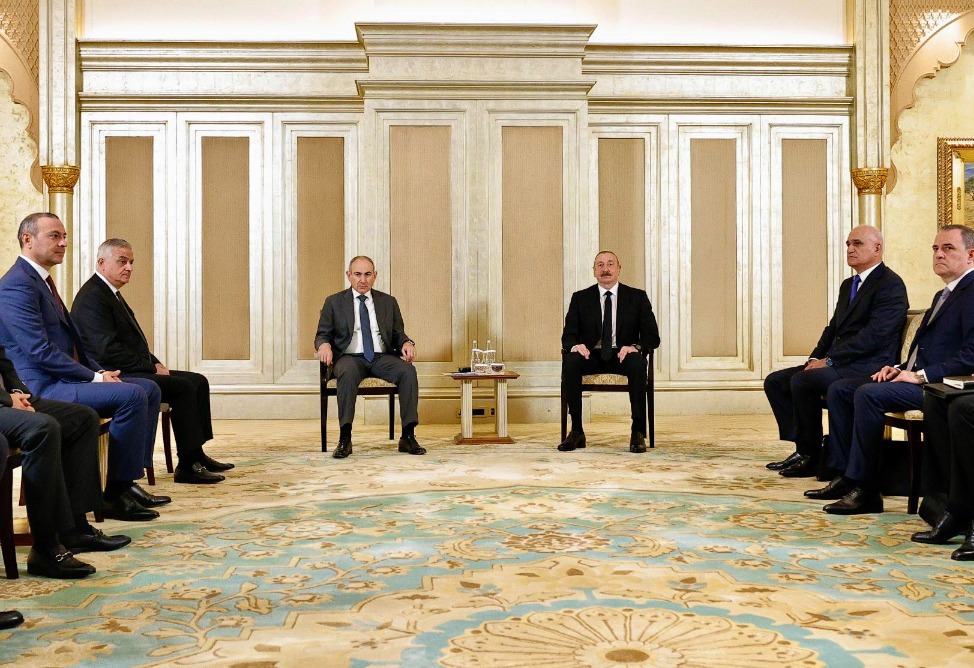KARABAKH CONFLICT BELONGS TO “WORLD POLITICICAL ELITE”
18.07.2007,
01:30
The Karabakh conflict has stopped being a conflict between the Nagorno-Karabakh Republic (NKR) and Azerbaijan and now belongs to “the world political elite”, said Armen Ashotian, member of the Board of the Republican Party of Armenia (RPA), member of the
YEREVAN, July 17. /ARKA/. The Karabakh conflict has stopped being a conflict between the Nagorno-Karabakh Republic (NKR) and Azerbaijan and now belongs to “the world political elite”, said Armen Ashotian, member of the Board of the Republican Party of Armenia (RPA), member of the RA Parliament.
Ashotian believes Karabakh is a front of a big geopolitical war being waged by the superpowers.
He says “the world political elite” has a multilayered structure and has various aims and tasks and it will neither intentionally aggravate, nor resolve the conflict. Ashotian forecasts that the status quo will be preserved.
Therefore, he considers it necessary to treat the NKR conflict as a derivative of a range of problems.
Ashotian believes that the conflict cannot be solved in isolation from a chain of problems that the superpowers have.
According to him, the geopolitical struggle of those countries for influence is directly connected with the Karabakh conflict, as well as with other ones.
The Karabakh conflict broke out in 1988 when Nagorno Karabakh, mainly populated by Armenians, declared its independence from Azerbaijan.
On December 10, 1991, a few days after the collapse of the Soviet Union, a referendum took place in Nagorno Karabakh, and the majority of the population (99.89%) voted for independence from Azerbaijan.
Afterwards, large-scale military operations began, as a result of which Azerbaijan lost control over Nagorno-Karabakh and the seven regions adjacent to it.
On May 12, 1994 after the signing of the Bishkek cease-fire agreement, the military operations, which took 15,000 human lives, were stopped. Z. Sh. -0—
Ashotian believes Karabakh is a front of a big geopolitical war being waged by the superpowers.
He says “the world political elite” has a multilayered structure and has various aims and tasks and it will neither intentionally aggravate, nor resolve the conflict. Ashotian forecasts that the status quo will be preserved.
Therefore, he considers it necessary to treat the NKR conflict as a derivative of a range of problems.
Ashotian believes that the conflict cannot be solved in isolation from a chain of problems that the superpowers have.
According to him, the geopolitical struggle of those countries for influence is directly connected with the Karabakh conflict, as well as with other ones.
The Karabakh conflict broke out in 1988 when Nagorno Karabakh, mainly populated by Armenians, declared its independence from Azerbaijan.
On December 10, 1991, a few days after the collapse of the Soviet Union, a referendum took place in Nagorno Karabakh, and the majority of the population (99.89%) voted for independence from Azerbaijan.
Afterwards, large-scale military operations began, as a result of which Azerbaijan lost control over Nagorno-Karabakh and the seven regions adjacent to it.
On May 12, 1994 after the signing of the Bishkek cease-fire agreement, the military operations, which took 15,000 human lives, were stopped. Z. Sh. -0—



